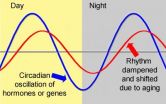(Press-News.org) Toronto – Quotas probably won't get more women into the boardroom in places like the U.S. and Canada.
They have a better chance however in countries such as China or Germany where people place a higher value on obeying authority and conforming to cultural norms, say a pair of researchers at the University of Toronto's Rotman School of Management. Their conclusions are published in the journal Organizational Dynamics and in a blog for the Harvard Business Review.
It all comes down to a culture's "tightness" or "looseness" -- the degree to which a culture maintains social norms, adheres to authority structures and tolerates deviations from them, say Profs. Soo Min Toh and Geoffrey Leonardelli. Global organizations seeking to expand their female leadership ranks need to understand which kind of culture they're operating in to take the right approach, the authors suggest.
"It's certainly an issue that has the attention of a lot of corporations right now," says Toh, an associate professor of organizational behaviour at the University of Toronto Mississagua's Institute of Management & Innovation, who is cross-appointed to the Rotman School. "There has been very little change in the last few years."
Tight cultures such as those in China, Germany, and Pakistan have a lower tolerance for deviation from cultural norms and may even impose severe sanctions for doing so. Loose cultures, such as in the U.S., New Zealand and Hungary, tend to be more open to change, and experience higher rates of change than tight cultures.
Tight cultures tend to have the worst rates of female leadership, but the compliance they command can be used to advantage, making gender quota strategies much more effective, say the researchers. Norway, considered a tight culture, achieved a target of 40% of women in director positions at public companies by 2007 through a quota that included dissolution of those firms that failed to meet the threshold.
"It's easier for tight cultures to implement policies like that because of the top-down approach to policy-making," says Prof. Toh. "In a loose culture however, it's very hard to say, 'This is how we're going to do it, so there.'"
Loose cultures, although exhibiting higher rates of gender egalitarianism overall, may be at a disadvantage for advancing the cause because of problems getting agreement on how to translate egalitarian principles into practice.
The researchers speculate that in those cases, showcasing women leaders as role models may be a more effective way of changing the perceptions of decision-makers and women themselves about what leadership looks like, resulting in more women stepping forward and being chosen for leadership roles. In one experiment, women who were exposed to pictures and biographies of prominent female leaders were more likely to subsequently see compatibility between women and leadership.
INFORMATION:
For the latest thinking on business, management and economics from the Rotman School of Management, visit http://www.rotman.utoronto.ca/FacultyAndResearch/NewThinking.aspx.
The Rotman School of Management at the University of Toronto is redesigning business education for the 21st century with a curriculum based on Integrative Thinking. Located in the world's most diverse city, the Rotman School fosters a new way to think that enables the design of creative business solutions. For more information, visit http://www.rotman.utoronto.ca.
For more information:
Ken McGuffin
Manager, Media Relations
Rotman School of Management
University of Toronto
Voice 416.946.3818
E-mail mcguffin@rotman.utoronto.ca
Follow Rotman on Twitter @rotmanschool
Watch Rotman on You Tube http://www.youtube.com/rotmanschool
Gender quotas work in 'tight' cultures, says new paper from the University of Toronto
2014-07-17
ELSE PRESS RELEASES FROM THIS DATE:
A new view of the world
2014-07-17
New research out of Queen's University has shed light on how exercise and relaxation activities like yoga can positively impact people with social anxiety disorders.
Adam Heenan, a Ph.D. candidate in the Clinical Psychology, has found that exercise and relaxation activities literally change the way people perceive the world, altering their perception so that they view the environment in a less threatening, less negative way. For people with mood and anxiety disorders, this is an important breakthrough.
For his research, Mr. Heenan used point-light displays, a depiction ...
Transplant patients who receive livers from living donors more likely to survive
2014-07-17
(PHILADELPHIA) – Research derived from early national experience of liver transplantation has shown that deceased donor liver transplants offered recipients better survival rates than living donor liver transplants, making them the preferred method of transplantation for most physicians. Now, the first data-driven study in over a decade disputes this notion. Penn Medicine researchers found that living donor transplant outcomes are superior to those found with deceased donors with appropriate donor selection and when surgeries are performed at an experienced center. The ...
GW researcher unlocks next step in creating HIV-1 immunotherapy using fossil virus
2014-07-17
WASHINGTON (July 17, 2014) — The road to finding a cure for HIV-1 is not without obstacles. However, thanks to cutting-edge research by Douglas Nixon, M.D., Ph.D., and colleagues, performed at the George Washington University (GW), Oregon Health & Science University, the University of Rochester, and UC San Francisco, the scientific community is one step closer to finding a viable immunotherapy option for HIV-1, using an immune attack against a fossil virus buried in the genome.
A major hurdle in eradicating HIV-1 has been outsmarting the frequent mutations, or changing ...
Oregon geologist says Curiosity's images show Earth-like soils on Mars
2014-07-17
EUGENE, Ore. -- Soil deep in a crater dating to some 3.7 billion years ago contains evidence that Mars was once much warmer and wetter, says University of Oregon geologist Gregory Retallack, based on images and data captured by the rover Curiosity.
NASA rovers have shown Martian landscapes littered with loose rocks from impacts or layered by catastrophic floods, rather than the smooth contours of soils that soften landscapes on Earth. However, recent images from Curiosity from the impact Gale Crater, Retallack said, reveal Earth-like soil profiles with cracked surfaces ...
Is the universe a bubble? Let's check
2014-07-17
Never mind the big bang; in the beginning was the vacuum. The vacuum simmered with energy (variously called dark energy, vacuum energy, the inflation field, or the Higgs field). Like water in a pot, this high energy began to evaporate – bubbles formed.
Each bubble contained another vacuum, whose energy was lower, but still not nothing. This energy drove the bubbles to expand. Inevitably, some bubbles bumped into each other. It's possible some produced secondary bubbles. Maybe the bubbles were rare and far apart; maybe they were packed close as foam.
But here's the thing: ...
Orthopedic surgery generally safe for patients age 80 and older
2014-07-17
ROSEMONT, Ill.─Over the past decade, a greater number of patients, age 80 and older, are having elective orthopaedic surgery. A new study appearing in the Journal of Bone and Joint Surgery (JBJS) found that these surgeries are generally safe with mortality rates decreasing for total hip (THR) and total knee (TKR) replacement and spinal fusion surgeries, and complication rates decreasing for total knee replacement and spinal fusion in patients with few or no comorbidities (other conditions or diseases).
"Based on the results of this study, I think very elderly patients, ...
Study led by indigenous people uncovers grizzly bear 'highway'
2014-07-17
A novel, First Nations-led research collaboration has revealed a previously undocumented grizzly bear aggregation in coastal British Columbia, one of the most southerly aggregations of salmon-feeding grizzlies in North America. Using non-invasive DNA analysis, the authors describe a grizzly bear "highway," identifying nearly 60 individual bears, many who travelled hundreds of miles from surrounding areas to feed on autumn-spawning salmon in the Koeye River. The research was guided by the customary law and cultural practices of the Heiltsuk First Nation and recently published ...
Lipoic acid helps restore, synchronize the 'biological clock'
2014-07-17
CORVALLIS, Ore. – Researchers have discovered a possible explanation for the surprisingly large range of biological effects that are linked to a micronutrient called lipoic acid: It appears to reset and synchronize circadian rhythms, or the "biological clock" found in most life forms.
The ability of lipoic acid to help restore a more normal circadian rhythm to aging animals could explain its apparent value in so many important biological functions, ranging from stress resistance to cardiac function, hormonal balance, muscle performance, glucose metabolism and the aging ...
How the brain stabilizes its connections in order to learn better
2014-07-17
Throughout our lives, our brains adapt to what we learn and memorise. The brain is indeed made up of complex networks of neurons and synapses that are constantly re-configured. However, in order for learning to leave a trace, connections must be stabilized. A team at the University of Geneva (UNIGE) discovered a new cellular mechanism involved in the long-term stabilization of neuron connections, in which non-neuronal cells, called astrocytes, play a role unidentified until now. These results, published in Current Biology, will lead to a better understanding of neurodegenerative ...
NASA's Aqua satellite sees birth of Tropical Depression 10W
2014-07-17
The tenth tropical depression of the Northwestern Pacific Ocean was born as NASA's Aqua satellite passed overhead.
NASA's Aqua satellite passed over Tropical Depression 10W on July 17, as it came together northwest of the island of Yap. As Aqua passed overhead the Atmospheric Infrared Sounder (AIRS) instrument aboard captured infrared data that showed powerful thunderstorms developed around the storm's center. When AIRS gathered the data on the cloud tops, the temperatures were already as cold as -63F/-52C, indicating strong uplift has pushed them to the top of the troposphere.
At ...






